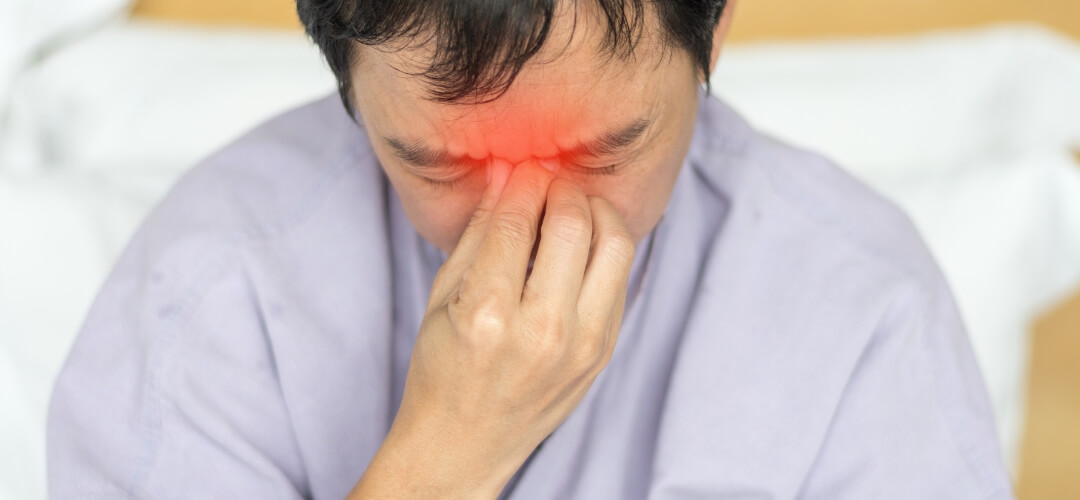A concussion is a type of brain injury that can have serious physical, cognitive, and emotional implications—Especially if left untreated. Whether you’re an athlete, office worker, or caregiver, it’s important to understand the signs, symptoms, and recovery process associated with concussions.
At Mid North Coast Allied Health, our team of expert professionals is committed to providing individualised treatment and holistic approaches for your own unique needs. That’s why we’ve put together this comprehensive guide to concussion treatment, packed full of information and tips for a smooth recovery.
What is a concussion?
To fully understand how to best treat a concussion, you first need to know what it actually is. A concussion is typically caused by a blow, jolt, or sudden movement to the head or body. It temporarily affects the way your brain functions and can cause a range of physical, cognitive, and emotional symptoms.
Concussions are commonly caused by sports-related injuries, falls, or accidents, but not exclusively. For example, a person may experience a concussion as a result of a physical assault, a motor vehicle accident, or even a workplace injury. In some cases, individuals may even develop a concussion due to a medical condition or disease that affects brain function—without any external force causing its onset.
What are the symptoms of a concussion?
Concussions can lead to a variety of symptoms, which can vary from person to person. These symptoms can be categorised into three main groups: physical, cognitive, and emotional.
It’s important to note that many of the symptoms associated with concussions can overlap with other illnesses, injuries, and disorders. This is why a thorough assessment by a healthcare professional is crucial to determine the underlying cause.
However, if you have recently experienced force or trauma to the head or body, you should be aware of any of the following symptoms developing.
Physical Symptoms
Physical symptoms can greatly impact daily life, especially for more severe concussions. It is important to consult with a healthcare professional to receive the necessary treatment and support throughout the recovery process.
Physical symptoms of a concussion can range from mild to severe and may include:
- Headache or pressure in the head
- Nausea or vomiting
- Dizziness or balance problems
- Sensitivity to light or noise
- Fatigue or drowsiness
- Blurred or double vision
- Difficulty sleeping
- Ringing in the ears
Cognitive Symptoms
It is normal for people who have experienced a concussion to have cognitive symptoms. These symptoms can affect an individual’s ability to perform daily tasks, work, study, or engage in social activities. Cognitive symptoms can be frustrating to manage, but with proper treatment and support, they can be overcome.
Cognitive symptoms of a concussion may include:
- Confusion or feeling mentally foggy
- Memory problems
- Difficulty concentrating or paying attention
- Slowed thinking or processing information
- Feeling disoriented or having a sense of “feeling off”
Emotional Symptoms
It is common for people who have experienced a concussion to have emotional symptoms. These emotional symptoms can be as debilitating as the physical and cognitive symptoms and can affect an individual’s daily life and relationships.
Emotional symptoms of a concussion may include:
- Irritability or mood swings
- Anxiety or nervousness
- Depression or sadness
- Feeling more emotional than usual
- Changes in personality or behaviour
How long do concussion symptoms last?
The duration of concussion symptoms can vary depending on the severity of the injury and the individual. Most people recover fully from a concussion within a few weeks to a few months. However, some individuals may experience persistent symptoms that last longer.
What to do if you have a concussion?
If you suspect you have a concussion, it is important to take the following steps:
- Remove yourself from the activity or situation that caused the injury.
- Rest and avoid activities that could exacerbate your symptoms.
- Seek medical attention from a healthcare professional experienced in concussion management.
- Follow the healthcare professional’s advice and guidelines for recovery.
How to treat a concussion?
While there is no specific medication or treatment to cure a concussion, there are strategies that can aid in the recovery process. Here are some tips for treating a concussion:
- Rest and take it easy: Allow your brain to heal by getting plenty of rest and avoiding activities that could worsen your symptoms.
- Increase activity under your physiotherapists guidance: As you start feeling better, gradually reintroduce physical and cognitive activities based on the advice of your healthcare professional.
- Follow prescribed medication: If your doctor prescribes any medication for pain or other symptoms, take it as directed.
- Limit brain strain activities: Avoid activities that require intense concentration or that may strain your brain, such as watching television or using electronic devices for extended periods.
- Eat a nutritious diet: Consuming a balanced diet rich in fruits, vegetables, lean proteins, and healthy fats can support the healing process.
- Attend follow-up appointments: Regularly check in with your healthcare professional to monitor your progress and adjust your treatment plan if necessary.
- Seek emotional support: Dealing with a concussion can be emotionally challenging. Seek support from family, friends, or a mental health professional who can provide guidance and understanding.
- Take precautionary measures: Take preventive measures to reduce the risk of future concussions, such as wearing appropriate headgear in high-impact sports or using safety equipment at work.
How long does a concussion last?
The duration of a concussion can vary, and there is no set timeline for recovery. In many cases, symptoms resolve within a few weeks to a few months. However, every individual’s recovery process is unique, and some may experience persistent symptoms that last longer. It is important to listen to your body and work closely with your healthcare professional to monitor your progress.
By following these tips and working closely with your healthcare professional, you can aid in your own recovery and promote a smooth healing process after a concussion. Remember to prioritise your health and give yourself the time and care you need to fully recover.
Here When You Need Us
At Mid North Coast Allied Health, we recognize the significance of pursuing treatment following a concussion. Our dedicated team of professionals is committed to delivering personalised care and holistic approaches tailored to your specific needs. Utilising a network of health professionals, we ensure comprehensive support throughout the recovery process.
If you or someone you know has experienced a concussion, we encourage you to reach out to us for assistance. Early intervention and proper care can significantly contribute to a smoother recovery and improve long-term outcomes. Don’t wait, take the first step towards healing by scheduling an appointment with us today.
What is Remedial Massage and How Can It Benefit You?
What is remedial massage? Remedial massage is a holistic approach to healthcare that helps to alleviate pain and discomfort in the body. This type of massage therapy involves using specific techniques that target the root cause of the problem, rather than just...
Embrace the Great Outdoors: 5 Steps to Prepare for ‘Take a Hike Day’
Are you ready to lace up your hiking boots and hit the trails? 'Take a Hike Day' is just around the corner on the 17th of November, and it's the perfect opportunity to reconnect with nature, get some exercise, and clear your mind. We, at Mid North Coast Allied Health,...
The Top 5 Benefits of Joining an Exercise Class
In today's busy world, finding time to stay fit and active can be a challenge — especially when work demands, family commitments, and various other responsibilities seem to vie for our attention. However, one excellent way to prioritise your health and fitness goals...





